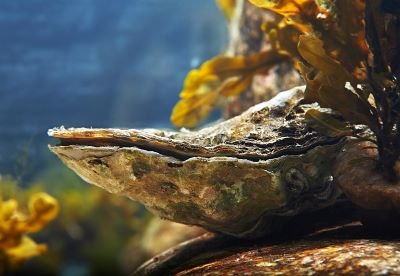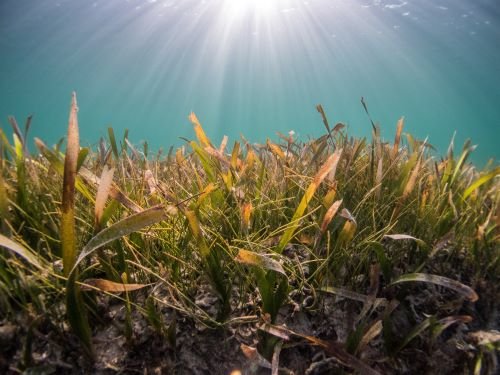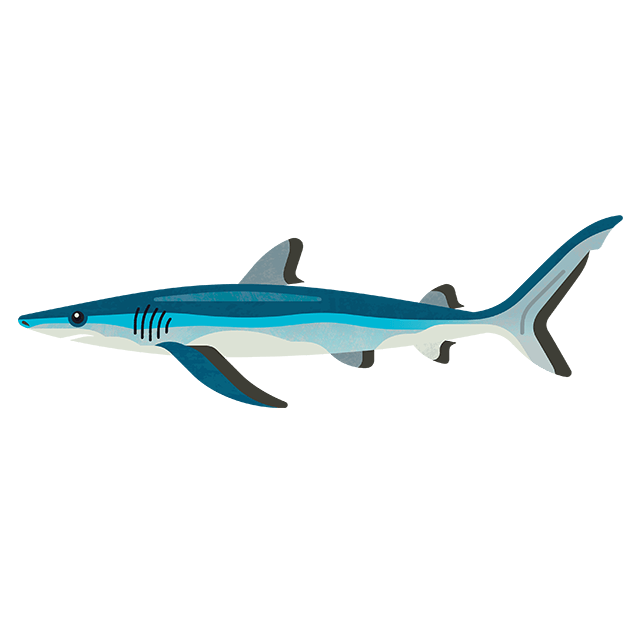
Positive ocean news: August 2023 edition
4 minute read
We've rounded up some good news stories for our seas from this month, including the discovery of the oldest jellyfish and a newly discovered underwater ecosystem.
Palm Beach County sees record-breaking number of turtle nests
Loggerhead, leatherback and green turtles all nest on the beach, but the majority – roughly 15,000 – of the nests recorded belong to loggerheads.
The rise in nests is a result of decades of ocean conservation efforts, which are helping to protect the marine turtle species and their habitats.
Read more on the Good News Network website
Oldest jellyfish ever recorded found in fossil
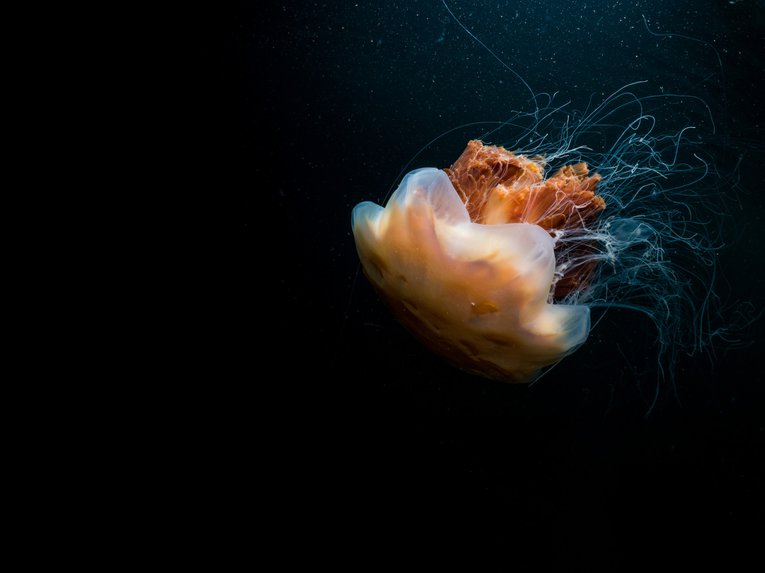
Credit: Mark Kirkland
A 505-million-year-old swimming jellyfish has been found among fossils in the Burgess Shale, making it the oldest known species.
The newly-identified species, named Burgessomedusa phasmiformis, was bell-shaped, with a body around 20cm in height and around 90 short tentacles.
Jellyfish are thought to be one of the earliest animal groups to have evolved, but as they are 95% water, finding fossilised specimens is difficult. This discovery provides evidence that swimming jellyfish were around at that time, and provides insight into how they evolved.
Read more on the Guardian website
Artist unveils mosaic to highlight endangered basking shark

Credit: Kimmy McHarrie
Kimmy McHarrie created a three-metre-long basking shark mosaic to raise awareness of the species which used to be commonly seen around the Isle of Man, where she is based.
In thirteen years, the number of basking sharks recorded in Manx waters dropped from 500 to 8.
Kimmy hopes that the artwork, which is on display at Ronaldsway Airport, will highlight the importance of respecting the increasingly fragile ecosystem of the ocean and the species living in it.
The mosaic is made using local stone, recycled glass and other items the artist found, in recognition of the commitments made to ocean conservation, sustainability, and tackling the climate emergency.
It is accompanied by a film, which features footage of basking sharks in Manx waters, as well as interviews with local fishermen and a marine biologist.
Read more on the Kimmy McHarrie website
Oyster festival pledges to return shells to native bed in Scotland
Replacing the shells to the sustainably-managed Loch Ryan oyster bed will help to grow it, providing support and structure for young oysters to settle and grow on.
With around 12,000 oysters consumed at last year’s festival, the ‘recycling’ of shells is hoped to provide a valuable boost to the native oysters’ habitat, which will benefit the local biodiversity and help conserve the important species.
Read more on theGuardian website.
New ecosystem discovered beneath ocean floor
While on a 30-day expedition, scientists discovered a new ecosystem under the seafloor, beneath hydrothermal vents.
Worms, snails, and bacteria were found living in 25°C water under the volcanic hot springs.
Despite being well-studied for over 45 years, scientists focussed on life above the seafloor at hydrothermal vents, rather than what could be living underground.
After overturning chunks of volcanic crust, the research team discovered narrow cave systems, which vent animals like tubeworms use to travel to and from the seafloor.
Dr. Jyotika Virmani, Schmidt Ocean Institute’s Executive Director, said, “this truly remarkable discovery of a new ecosystem, hidden beneath another ecosystem, provides fresh evidence that life exists in incredible places.”
Read more on the Schimdt Ocean Institute website
Project aims to plant one million seagrass plants by 2050
Med Sea hopes that the project will help safeguard Sardinia’s coasts, anchoring sea sediment and dispelling wave energy, whilst also helping to fight the climate crisis through carbon sequestering.
Read more on the Good News Network website
Rare hybrid dolphins spotted in Cornwall
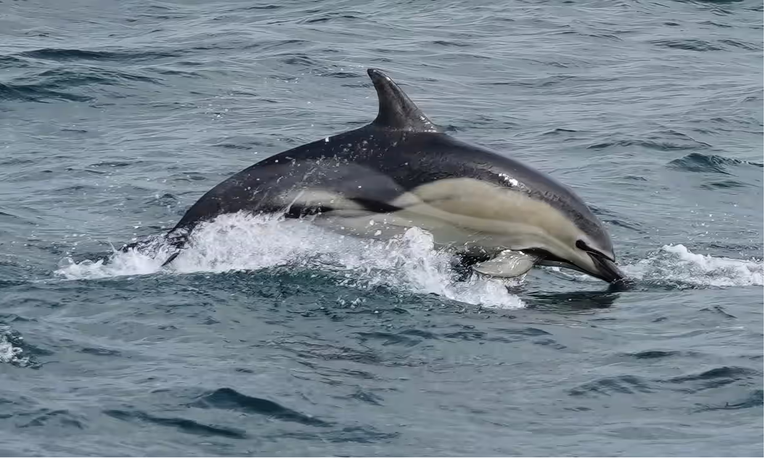
Credit: Leeanne Sullivan / Captain Keith Leeves - AK Wildlife Cruises
Dolphins, which are a cross between the common and striped species, were seen off Falmouth on the Cornish coast, in what’s thought to be the first sighting of this kind in the UK.
The two dolphins, which were spotted by passengers and crew at AK Wildlife Cruises, had the colouring of common dolphins but the black-and-white stripe of the striped species. Although breeding across species is common in dolphins, it’s rare to see a hybrid of these breeds, and even rarer to see them in UK waters, with no other recorded sightings to date.
AK Wildlife Cruises and the Sea Watch Foundation hopes that the sighting will raise awareness of dolphins which can be found in UK waters, which are currently under threat from habitat loss, overfishing and pollution.
Read more on the Guardian website



